Becoming the Iron Chef of Small Group Instruction
I've been wheat- and gluten-free since December 2010. Saying goodbye to pizza, bagels, sandwiches and pasta might rank up there as one of the more traumatic events of my life:) However, the timing of my wheat and gluten loss couldn't have been more convenient, as many gluten-free options now fill grocery shelves and restaurants offer gluten-free menus. (Shout out to P.F. Chang.)
 Recently, we took a gluten-free baking course at the Institute of Culinary Education. It was incredible. We spent the evening baking gluten-free pizza, tart and quiche crusts. We walked away confident, inspired, ready to bake.Full disclosure: We never baked those gluten-free recipes again. We were people who took a gluten-free baking class, instead of people studying to become better gluten-free bakers.In short, we took a class, not a course. Yes, we showed up and had one round of awesome practice and left feeling more confident than we did when we walked in. But there wasn't accountability post-class. There wasn't a community to show up for, to ask how our baking process was going, to share problems we faced. There wasn't a master chef following up on our progress, offering us immediate feedback across a span of weeks.Sometimes our small group instruction feels like an evening gluten-free pizza class rather than a professional course of study for a gluten-free baker. Sometimes if feels as if our students are kids taking a writing or reading class as opposed to students studying to become better readers and writers.Classes vs. Courses "Classes" are not bad. Small group work can feel like short term, high-intensity events that hone in on specific areas of need. For example, you study your essay drafts and notice four students struggling with paragraphing. You pull these kids for a quick small group lesson on choosing when to paragraph. A few days go by and you notice that the group now needs work with analyzing text evidence. You pull these kids for a small group lesson on elaboration and analysis. You're basing your instruction on the immediate needs of the kids and this is beautiful, effective teaching.However, small group work can also be a meeting place for kids to take 'mini-courses of study' on a specific topic, over time. Teaching mini-courses of study can help develop a line of work with a group of kids around a similar need or topic. For instance, let's return to the group of students working with paragraphing. Instead of one day on paragraphs, perhaps these students take a course of study on structure. If they struggle with the structure of paragraphs, perhaps they struggle with other elements of structure: complex sentence structure, the flow of topic sentences into supporting sentences, the structure of an effective conclusion, the structure of presenting evidence. After a mini-course of study on structure, students leave with more developed, in-depth, differentiated support that's likely to transfer over to multiple pieces of writing. Carl Anderson shares a similar idea of developing larger, more expansive writing goals from individual conferences as opposed to conferring on-the-fly. (Check out this post on Two Writing Teachers that highlights this concept.)Designing Mini-Courses of Study During Small Group Work Mini-courses of study are a series of 3-6 small group lessons, bundled together to provide kids enough practice on a larger concept so they can achieve growth. (Check out our post, Rinse & Repeat: How Learning Sticks, that discusses how often kids need practice in order to become independent.)Steps for Designing a Mini-Course of StudyStep One: Use data to design a small group of 3-4 students who need the same thing. Popular places to look for trends:
Recently, we took a gluten-free baking course at the Institute of Culinary Education. It was incredible. We spent the evening baking gluten-free pizza, tart and quiche crusts. We walked away confident, inspired, ready to bake.Full disclosure: We never baked those gluten-free recipes again. We were people who took a gluten-free baking class, instead of people studying to become better gluten-free bakers.In short, we took a class, not a course. Yes, we showed up and had one round of awesome practice and left feeling more confident than we did when we walked in. But there wasn't accountability post-class. There wasn't a community to show up for, to ask how our baking process was going, to share problems we faced. There wasn't a master chef following up on our progress, offering us immediate feedback across a span of weeks.Sometimes our small group instruction feels like an evening gluten-free pizza class rather than a professional course of study for a gluten-free baker. Sometimes if feels as if our students are kids taking a writing or reading class as opposed to students studying to become better readers and writers.Classes vs. Courses "Classes" are not bad. Small group work can feel like short term, high-intensity events that hone in on specific areas of need. For example, you study your essay drafts and notice four students struggling with paragraphing. You pull these kids for a quick small group lesson on choosing when to paragraph. A few days go by and you notice that the group now needs work with analyzing text evidence. You pull these kids for a small group lesson on elaboration and analysis. You're basing your instruction on the immediate needs of the kids and this is beautiful, effective teaching.However, small group work can also be a meeting place for kids to take 'mini-courses of study' on a specific topic, over time. Teaching mini-courses of study can help develop a line of work with a group of kids around a similar need or topic. For instance, let's return to the group of students working with paragraphing. Instead of one day on paragraphs, perhaps these students take a course of study on structure. If they struggle with the structure of paragraphs, perhaps they struggle with other elements of structure: complex sentence structure, the flow of topic sentences into supporting sentences, the structure of an effective conclusion, the structure of presenting evidence. After a mini-course of study on structure, students leave with more developed, in-depth, differentiated support that's likely to transfer over to multiple pieces of writing. Carl Anderson shares a similar idea of developing larger, more expansive writing goals from individual conferences as opposed to conferring on-the-fly. (Check out this post on Two Writing Teachers that highlights this concept.)Designing Mini-Courses of Study During Small Group Work Mini-courses of study are a series of 3-6 small group lessons, bundled together to provide kids enough practice on a larger concept so they can achieve growth. (Check out our post, Rinse & Repeat: How Learning Sticks, that discusses how often kids need practice in order to become independent.)Steps for Designing a Mini-Course of StudyStep One: Use data to design a small group of 3-4 students who need the same thing. Popular places to look for trends:
- annotations on post its or in the margins of a text
- writing about reading entries
- student writing in notebook, draft or final form
- results from a performance assessment, like here
Step Two: Plan a mini-course of study Create a template to keep track of what to teach during the mini-course of study, the progress kids are making, and ideas for further instruction. Here is a rendition of an organizational template: Here is another example of a syllabus for a three-day mini-course of study on structure in essay:
Here is another example of a syllabus for a three-day mini-course of study on structure in essay: Step Three: Manage and nurture your mini-courses of study Like establishing any good habit, it takes follow-through to keep it going. Plan when you'll run your mini-courses of study. Maybe you begin by launching one mini-course of study that happens one time a week. Maybe small group work happens on specific days of the week, like Tuesdays and Thursdays. Maybe small group work happens daily for a week, right after the lesson. Make a doable schedule that you can follow and revisit to see how it's going.Also, plan how students become involved with a mini-course of study. While much of the time you might decide who is in a small group. In addition teacher-formed groups, perhaps kids sign up for a mini-course, like this:
Step Three: Manage and nurture your mini-courses of study Like establishing any good habit, it takes follow-through to keep it going. Plan when you'll run your mini-courses of study. Maybe you begin by launching one mini-course of study that happens one time a week. Maybe small group work happens on specific days of the week, like Tuesdays and Thursdays. Maybe small group work happens daily for a week, right after the lesson. Make a doable schedule that you can follow and revisit to see how it's going.Also, plan how students become involved with a mini-course of study. While much of the time you might decide who is in a small group. In addition teacher-formed groups, perhaps kids sign up for a mini-course, like this: Step Four: Practice different methods of teachingNot everyone will learn from the same kind of lesson. Vary your teaching moves to get as many kids on board as possible. (See future blog posts for methods of small group instruction!)Here are two educators who have helped us grow our thinking around this topic: Jennifer Serravallo & Marjorie Martinelli. Check them out to hear more about small group work!Big Idea: Small Group Instruction Tiny Detail: Planning & Scheduling Mini Courses of Study
Step Four: Practice different methods of teachingNot everyone will learn from the same kind of lesson. Vary your teaching moves to get as many kids on board as possible. (See future blog posts for methods of small group instruction!)Here are two educators who have helped us grow our thinking around this topic: Jennifer Serravallo & Marjorie Martinelli. Check them out to hear more about small group work!Big Idea: Small Group Instruction Tiny Detail: Planning & Scheduling Mini Courses of Study

